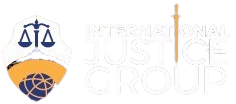- Every person shall have the right to freedom of expression, being fully responsible for the abuse thereof. This right shall not be curtailed, restricted or enjoined by government save during an emergency declared in accordance with this Constitution.
- The right encompasses the right to hold opinions without interference and the right to knowledge. It includes freedom of speech and of the press, academic freedom to receive and impart knowledge and information and the right of libraries to make such knowledge available. It includes non-interference with the use of the mail, telephone and telegraph. It likewise includes the right to remain silent.
- In pursuance of this right, there shall be no limitation on the public right to be informed about the government and its functionaries.
- Access to state owned media shall not be denied because of any disagreement with or dislike of the ideas express. Denial of such access may be challenged in a court of competent jurisdiction.
- This freedom may be limited only by judicial action in proceedings grounded in defamation or invasion of the rights of privacy and publicity or in the commercial aspect of expression in deception, false advertising and copyright infringement.
Categories
- Chapter I (Structure Of The State 3
- Chapter II (General Principle Of National Policy 7
- Chapter III (Fundamental Rights 16
- Chapter IV (Citizenship 2
- Chapter IX (Emergency Powers 4
- Chapter V (The Legislature 21
- Chapter VI (The Executive 15
- Chapter VII (The Judiciary 12
- Chapter VIII (Political Parties And Elections 8
- Chapter X (Autonomous Public Commissions 1
- Chapter XI (Miscellaneous 1
- Chapter XII (Amendments 3
- Chapter XIII (Transitional Provisions 4
